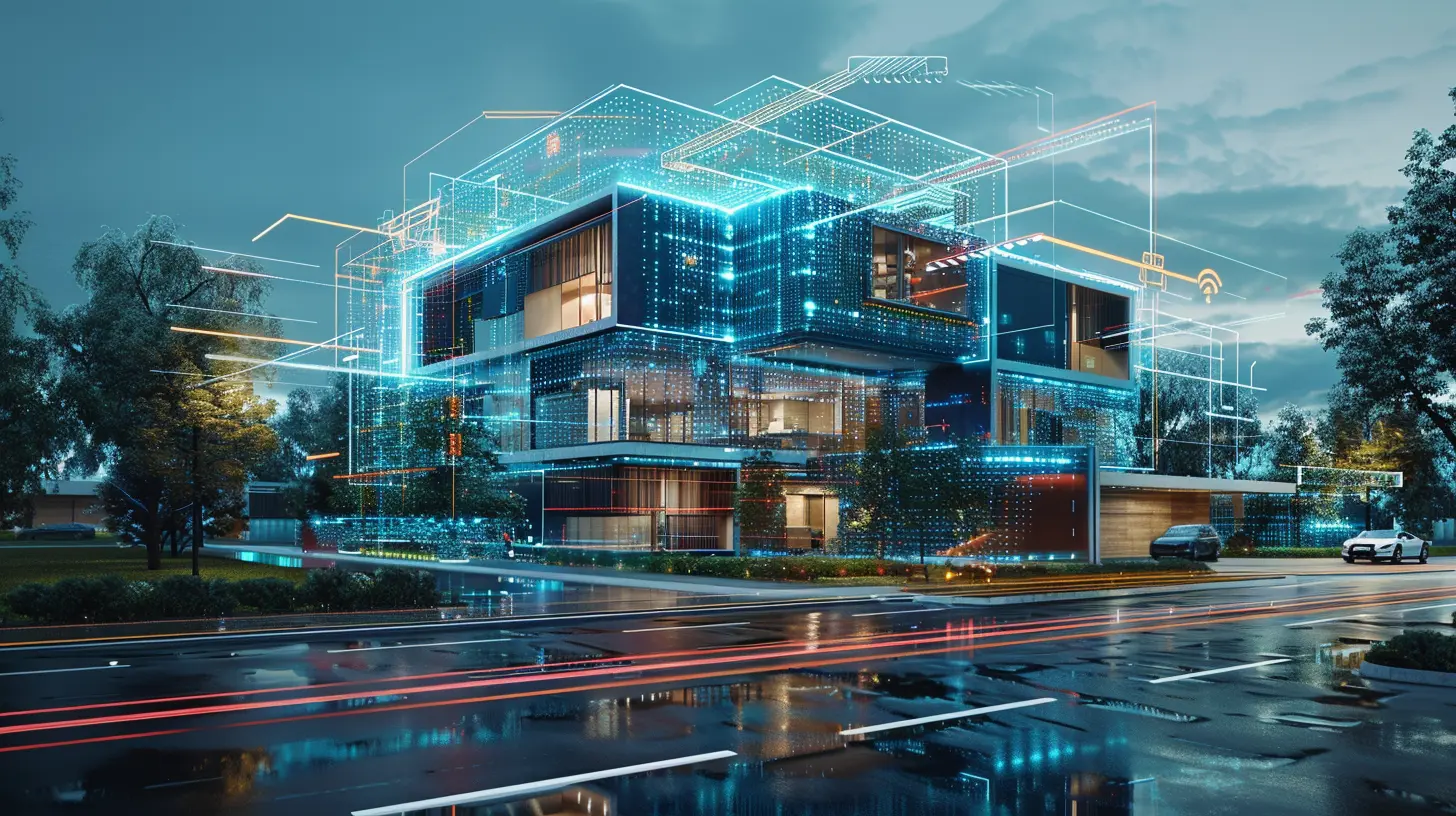15 January 2025
Commercial real estate (CRE) has undergone a seismic shift in recent years, and guess what? Technology is at the heart of it all. The days of relying solely on handshakes and gut instincts are long gone. Now, it’s all about leveraging data, automation, and cutting-edge tools to make smarter decisions faster. But what exactly is changing, and how is technology flipping the script for this multi-billion-dollar industry? Let’s dive in. 
The Digital Revolution in Commercial Real Estate
Let’s face it: commercial real estate historically hasn’t been the speediest industry to adapt to technological advancements. For decades, brokers, developers, and investors stuck to old-school methods like spreadsheets, phone calls, and piles of paperwork. But the tech revolution has hit, and it’s not slowing down.We’re talking about Artificial Intelligence (AI), the Internet of Things (IoT), blockchain, and more – all reshaping how CRE professionals operate. Think of it as an upgrade from a flip phone to the latest smartphone. Everything is smarter, faster, and more efficient.
What’s Driving This Transformation?
Picture this: the pandemic hits, remote work skyrockets, and brick-and-mortar spaces are suddenly in flux. Companies needed faster and better ways to evaluate properties, predict market trends, and make decisions. Enter: technology.The demand for real-time data, virtual property tours, and automated marketing tools exploded. And honestly? It’s probably the best thing to happen to an industry that was overdue for a tech makeover. 
Game-Changing Technologies in Commercial Real Estate
Alright, let’s break it down. Here are the top tech advancements shaking up the commercial real estate world:1. Artificial Intelligence (AI)
AI is like the secret sauce of modern CRE. It’s no longer just a buzzword; it’s a game-changer. AI can crunch massive amounts of data to predict market trends, assess property values, and even match tenants with properties that fit their needs.Think about it: instead of manually analyzing dozens of reports, AI does the dirty work in seconds. For instance, platforms like Reonomy use AI to deliver insights on property ownership, zoning, and even tenant behaviors. It’s like having a crystal ball – but way more accurate.
2. Big Data and Predictive Analytics
Data is the backbone of smart decision-making, and in CRE, there’s no shortage of it. But the challenge? Making sense of it all. That’s where big data and predictive analytics come in.Imagine you’re trying to decide whether to invest in an office building. Instead of relying on guesswork, predictive analytics processes data from past trends, economic indicators, and local demand to give you a clear picture of potential ROI.
The result? Less risk, more reward.
3. PropTech Platforms
PropTech—short for “property technology”—is the umbrella term for platforms designed specifically for the real estate sector. Think Zillow, LoopNet, and CoStar. These platforms streamline everything from property searches to lease management.But there’s more. Startups like HqO and Building Engines are enhancing tenant experiences with smart apps that control building amenities, security access, and maintenance requests. Cool, right?
4. Virtual and Augmented Reality (VR/AR)
Remember the days of spending hours touring properties in person? Technology just gave that process a major glow-up.Virtual reality lets users “walk through” a property without leaving their couch. Meanwhile, augmented reality enhances the experience by overlaying designs, renovations, or even furniture layouts onto physical spaces.
This isn’t just a timesaver; it’s a decision-making superpower. With VR, buyers and tenants can visualize a space’s potential instantly – no imagination required.
5. The Internet of Things (IoT)
IoT is like the smart home concept but taken to an entirely new level for commercial buildings. Sensors, devices, and systems are interconnected, constantly feeding data to building managers.What does this mean in practice? Smart thermostats that save energy, lighting systems that adjust based on occupancy, and even predictive maintenance alerts before things break down. It’s tech that works smarter, not harder. 
How Blockchain is Revolutionizing CRE
OK, let’s talk about the elephant in the room: blockchain. While most people associate it with cryptocurrency, it’s so much more than that. In CRE, blockchain is streamlining processes like property transactions, leases, and title management.Using blockchain, transactions are faster, more secure, and transparent. No more shady deals or missing paperwork. Plus, tokenization – the ability to divide property ownership into digital tokens – is making it easier for smaller investors to get a piece of the pie.
Think of blockchain as the trustworthy middleman in an industry that’s often bogged down by legal complexities. 
Benefits of Technology for Key CRE Stakeholders
So, who’s winning in this tech-driven revolution? Well, pretty much everyone. Here’s how technology is helping key players in the industry:For Investors
- Smarter Investments: With access to big data and AI insights, investors can predict market trends and identify high-potential properties.- Lower Risks: Predictive analytics minimizes guesswork, reducing the chances of poor investments.
For Brokers
- Better Marketing: Automated tools and virtual tours make it easier to showcase properties and attract clients.- Faster Transactions: Digital contracts, blockchain, and cloud-based tools streamline deals like never before.
For Tenants
- Enhanced Experience: IoT-powered smart buildings mean more comfort and convenience.- Transparency: Blockchain provides a clear and secure trail of all transactions.
Challenges of Adopting Technology in CRE
Of course, it’s not all sunshine and rainbows. Adopting tech comes with its own set of challenges. For instance:- High Costs: Implementing advanced tech solutions isn’t exactly cheap. Many smaller firms struggle to keep up.
- Learning Curve: Not everyone in CRE is tech-savvy, and getting teams up to speed can be a slow process.
- Data Security: With so much sensitive data now online, cybersecurity threats are a significant concern.
But hey, no pain, no gain, right? The long-term benefits far outweigh these hurdles.
The Future of Technology in Commercial Real Estate
If you think the transformation is impressive now, just wait – we’re just getting started.In the future, expect even more integration of AI, robotics, and automation. Imagine drones performing building inspections or AI bots negotiating leases. Sounds like science fiction? It’s closer than you think.
Moreover, sustainability is becoming a huge focus. Tech like IoT and green building management systems will help CRE meet eco-friendly goals while cutting costs. After all, a smarter building isn’t just good for the wallet – it’s good for the planet, too.
Wrapping It Up
Technology is no longer just a nice-to-have in commercial real estate; it's a necessity. From AI-driven insights to blockchain-powered transactions, the industry is evolving at breakneck speed.Sure, there are challenges. But with the right balance of innovation and adaptation, the opportunities far outweigh the hurdles. The real question is: are you ready to embrace the change?
Because one thing is for sure – in the world of commercial real estate, the future is now.













Mitchell McGivern
Fascinating insights on how technology is reshaping commercial real estate! It’s intriguing to consider the potential of innovations like AI and smart buildings in enhancing efficiency and sustainability. Excited to see where this journey leads!
April 7, 2025 at 8:52 PM